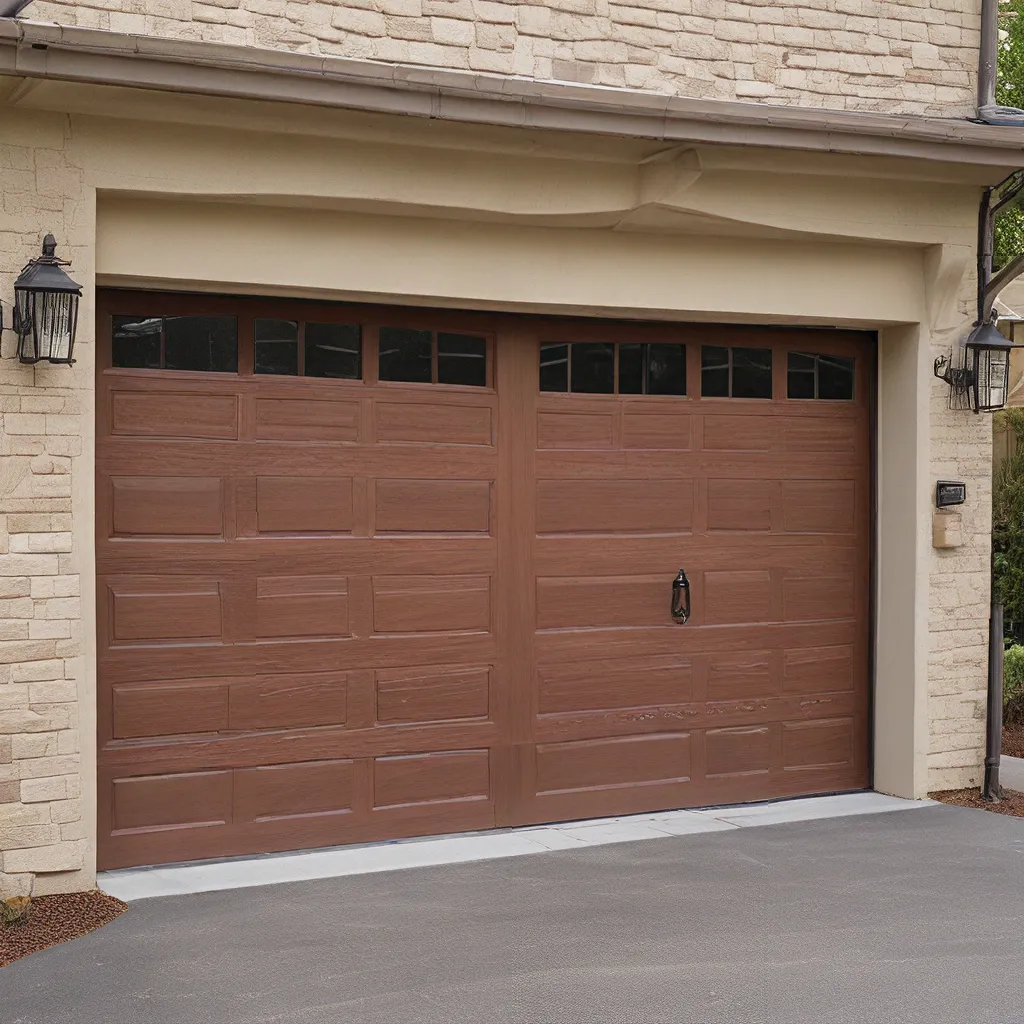
Maintaining the smooth and quiet operation of your garage door is crucial for the overall functionality and comfort of your home. One of the most important aspects of this maintenance is proper lubrication. Regular lubrication not only reduces noise but also helps to extend the lifespan of your garage door’s moving parts, saving you from costly repairs down the line.
Understanding the Importance of Garage Door Lubrication
Think of your garage door as a complex mechanism with numerous moving parts, including panels, tracks, rollers, springs, and the opener itself. Over time, these components can become worn down or susceptible to friction, leading to increased noise, sluggish performance, and even premature failure.
Proper lubrication is the key to maintaining the smooth and efficient operation of your garage door. By reducing friction between the moving parts, lubrication minimizes wear and tear, ensuring that your door opens and closes quietly and effortlessly. This not only enhances the overall tranquility of your home but also helps to prolong the life of your garage door system.
As highlighted by A1A Overhead Doors, lubrication plays a critical role in ensuring the smooth and quiet operation of your garage door. Moving parts such as rollers, hinges, and tracks should be regularly lubricated with a silicone-based lubricant to maintain their efficiency.
Choosing the Right Lubricant for Your Garage Door
When it comes to garage door lubrication, not all products are created equal. While a common go-to solution might be WD-40, it’s important to understand that this versatile spray is not the best choice for long-term lubrication.
According to Arizona Garage Door & Repair, WD-40 is a great water repellent, but it’s not a long-lasting lubricant. Over time, WD-40 can dry out, leaving your garage door parts vulnerable to friction and noise once again.
Instead, experts recommend using one of two specialized lubricants for optimal garage door performance:
- Lithium-based grease: This type of lubricant is designed to withstand high temperatures and provide long-lasting protection for your garage door’s moving parts.
- Silicone-based lubricant: Silicone-based sprays are also an excellent choice, as they offer superior lubrication and water resistance to keep your garage door operating smoothly.
Whichever lubricant you choose, it’s important to apply it methodically and sparingly, following the manufacturer’s instructions to ensure that you’re getting the most out of your investment.
Step-by-Step Garage Door Lubrication Guide
Now that you understand the importance of proper lubrication and the right products to use, let’s dive into the step-by-step process of lubricating your garage door:
Step 1: Prepare Your Workspace
Before you begin, disconnect the power source to your garage door opener to prevent any accidental activation during the process. Gather the necessary supplies, including your chosen lubricant, a sturdy ladder (if needed), and clean rags.
Step 2: Identify Key Lubrication Points
Locate the critical components that require lubrication, such as:
– Rollers: Inspect the rollers and replace any that are worn or damaged, as these can be a significant source of noise.
– Hinges: Apply a small amount of lubricant to the hinges, ensuring smooth operation.
– Tracks: Lubricate the garage door tracks to reduce friction and maintain fluid movement.
– Torsion springs: These components are under high tension and should be lubricated with care to prevent further issues.
Step 3: Apply Lubricant Methodically
For lithium-based grease, use a thin straw attachment to apply a small amount directly to the moving parts. For silicone-based sprays, target the areas mentioned above with short bursts, keeping the application light and even.
Step 4: Clean Up and Test
Wipe away any excess lubricant with your clean rags to prevent the buildup of dust and dirt, which can compromise the effectiveness of the lubrication. Once you’ve completed the lubrication process, reconnect the power source and operate your garage door a few times to ensure smooth, quiet movement.
Besser Bros recommends scheduling annual maintenance for your garage door to keep it in top condition, including comprehensive lubrication and other essential checks and adjustments.
The Benefits of Regular Garage Door Lubrication
Investing in the regular lubrication of your garage door can provide numerous benefits, including:
- Noise Reduction: Properly lubricated moving parts will operate with significantly less friction, resulting in a quieter and more peaceful home environment.
- Increased Lifespan: By minimizing wear and tear on your garage door’s components, lubrication can extend the overall lifespan of the entire system, potentially saving you from costly repairs or replacements down the line.
- Improved Efficiency: Smooth, well-lubricated operation ensures that your garage door opens and closes effortlessly, reducing strain on the motor and other mechanical parts.
- Enhanced Safety: Regular maintenance, including lubrication, helps to maintain the proper functioning of your garage door’s safety features, such as auto-reverse mechanisms, ensuring the safety of your family and property.
Conclusion
Maintaining the smooth and quiet operation of your garage door is an essential aspect of home maintenance, and proper lubrication is the key to achieving this goal. By understanding the importance of lubrication, choosing the right products, and following a step-by-step process, you can ensure that your garage door continues to function efficiently and quietly for years to come.
Remember, regular maintenance and lubrication not only enhance the overall comfort and tranquility of your home but also safeguard your investment in your garage door system. Partnering with a reputable garage door service provider can further ensure that your door is properly maintained and that any issues are addressed promptly and effectively.


